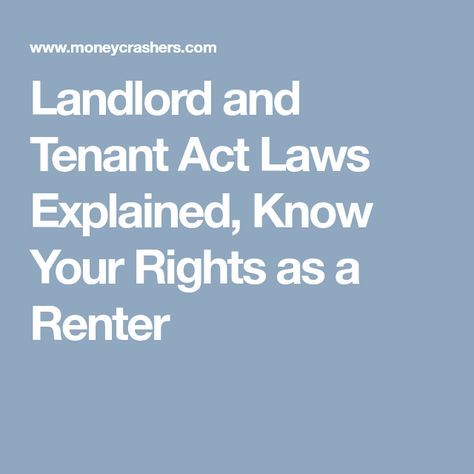When it comes to renting a property, both landlords and tenants have specific rights and responsibilities that must be upheld. Understanding these laws is crucial for maintaining a positive and legal landlord-tenant relationship. In this article, we will discuss the key rights and responsibilities of both parties to ensure a smooth and harmonious renting experience.
Landlord Rights
Landlords have certain rights that allow them to manage their rental properties effectively. Some of the key rights include:
1. Right to collect rent
Landlords have the right to collect rent from their tenants in a timely manner. They can set the terms and conditions for rent payments, including the amount due, payment deadlines, and acceptable payment methods.
2. Right to enter the property
Landlords have the right to enter the rental property for specific reasons, such as making repairs, conducting inspections, or showing the property to potential tenants or buyers. However, they must provide proper notice to the tenant before entering the property.
3. Right to evict tenants
If a tenant violates the lease agreement or fails to pay rent, landlords have the right to initiate eviction proceedings. However, landlords must follow the legal eviction process as outlined by state and local laws.
Tenant Rights
Tenants also have specific rights that protect them from unfair practices and ensure a safe and habitable living environment. Some of the key tenant rights include:
1. Right to a habitable property
Tenants have the right to live in a safe and habitable property. Landlords are responsible for providing a well-maintained and secure living space, including working heating and plumbing systems, adequate hot water, and proper sanitation facilities.
2. Right to privacy
Tenants have the right to privacy in their rental unit. Landlords must provide proper notice before entering the property for non-emergency reasons, and they cannot enter the property without the tenant’s consent except in specific circumstances as outlined by law.
3. Right to withhold rent
If a landlord fails to make necessary repairs or address health and safety concerns in a timely manner, tenants may have the right to withhold rent until the issues are resolved. However, tenants must follow specific procedures as outlined by state and local laws to withhold rent legally.
Responsibilities of Landlords
In addition to their rights, landlords also have specific responsibilities that they must fulfill to maintain a positive landlord-tenant relationship. Some of the key responsibilities include:
1. Providing a habitable property
Landlords are responsible for ensuring that the rental property meets specific health and safety standards. This includes maintaining the property in good condition, addressing repairs promptly, and complying with building, housing, and health codes.
2. Following the lease agreement
Landlords must follow the terms and conditions outlined in the lease agreement, including rent amounts, payment deadlines, and any other agreements made with the tenant. Any changes to the lease agreement must be communicated to the tenant in writing.
Responsibilities of Tenants
Tenants also have specific responsibilities that they must adhere to while renting a property. Some of the key responsibilities include:
1. Paying rent on time
Tenants must pay rent in full and on time according to the terms of the lease agreement. Failure to pay rent can result in late fees, eviction proceedings, and negative consequences for the tenant’s rental history.
2. Maintaining the property
Tenants are responsible for maintaining the rental property in a clean and sanitary condition. This includes proper disposal of trash, regular cleaning, and reporting any maintenance issues to the landlord promptly.
By understanding and adhering to these rights and responsibilities, landlords and tenants can foster a positive and mutually beneficial rental relationship. It is essential for both parties to communicate openly and resolve any conflicts or issues in a fair and respectful manner. Following the laws and guidelines related to landlord-tenant relationships will help ensure a successful and harmonious renting experience for all involved.
